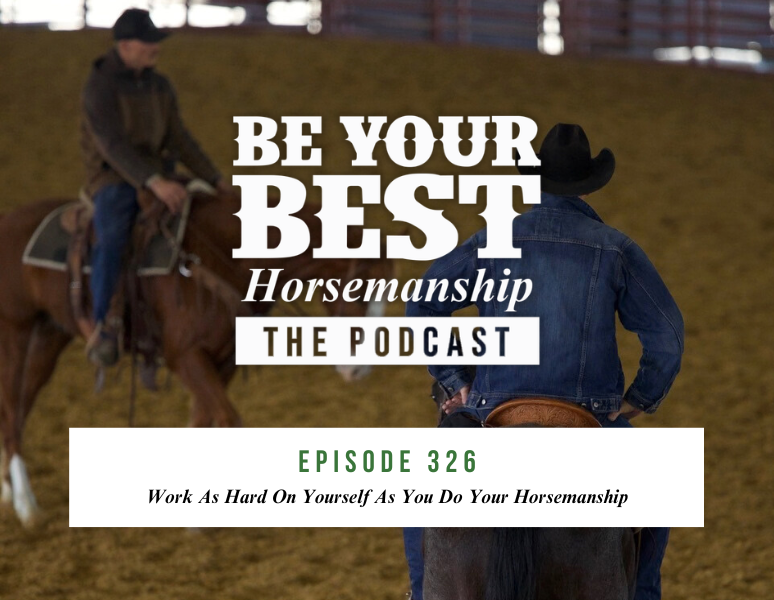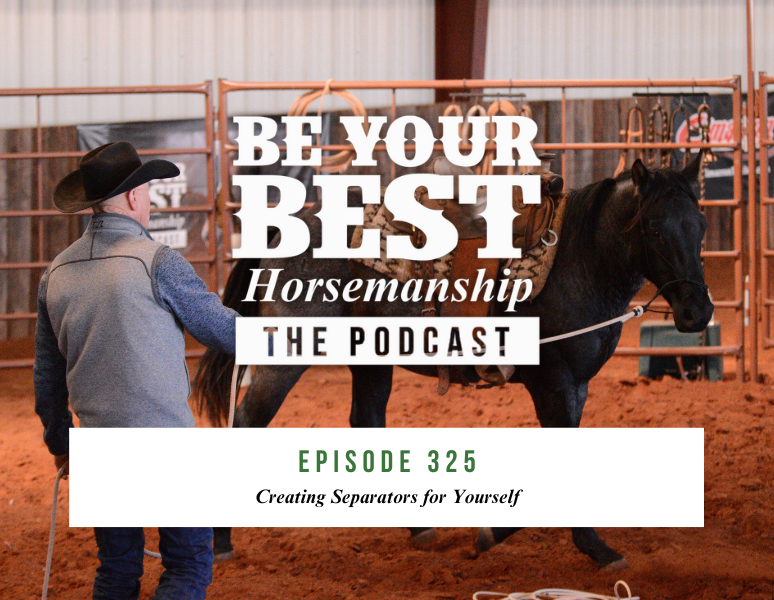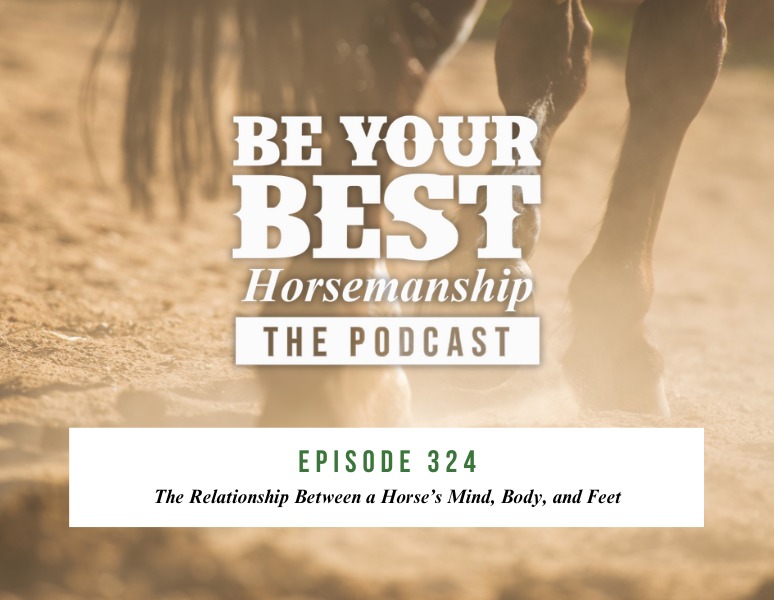Ep 127: Working with Anxious Colts
In today’s performance horse industry, we have the privilege of owning and riding some of the most physically talented horses in the world. However, when these horses are young and just getting started, this physical skill is often accompanied by anxiety, reactive tendencies, and mental immaturity. Over the years, I’ve learned that a horse can have all of the tools physically, but this toolkit is useless if I don’t have control over that horse’s mind.
The horse’s body is just a reflection of what’s going on inside that horse’s head. And oftentimes, with colts, there is a lot happening inside that horse’s mind. When horses are young, they tend to be much more observant of the stimulants around them. Whether that be another horse, a person, or an unknown object, colts tend to let their surroundings dictate their mental state.
In my experience, mental maturity is essential to progressing a horse’s training. Most horses are naturally born with all the physical talent in the world, but if this ability is clouded by an unstable mental state, we’re going to struggle to see consistency in that horse’s performance.
As a trainer, you have to remember that you can’t alter genetics. You can’t change the natural born tendencies of a horse. But, you can change the way you approach that horse’s training. You can shift your process to better accommodate the mental capacity of the horse.
When I am handling an anxious colt, I like to break my training routine up into shorter periods rather than one long training session. More frequent rides for shorter amounts of time give that horse multiple opportunities for mental stimulation.
When I complete a brief training session, I will tie the horse back up, and rinse and repeat this process 4-5 times throughout the day. This is beneficial for a few reasons. One, many colts have anxiety with restraint, and being tied up is a form of restraint. When you turn a reactive stimulant into the release, a horse becomes much more receptive to the idea of standing tied up. Two, this process of stimulation and rest helps that horse associate me with using the ‘thinking’ side of its brain, enhancing that horse’s mental maturity significantly.
When dealing with anxious colts, it is important to be considerate of their background. As a trainer, you will rarely have the privilege of handling a colt from day one. So, it is important to be mindful of their past and what factors have contributed to their current mental state. Each horse may require a slightly different approach, and that is perfectly okay. Be willing to give that horse an individualized approach.
“Be Your Best Horsemanship” is brought to you by Classic Equine, Martin Saddlery, Better Horses Network, Purina, Healthycoat, CINCH, Starbar, and Clarifly. These brands have been part of the Phil Haugen Horsemanship team for many years, and their products continue to play an integral role in the success of our performance horse training program. To support these brands, visit our Sponsors tab.




